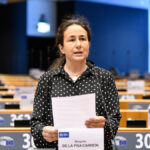European Business Summits
info@ebsummit.eu – 0032 (0) 2 645 34 80
TRANSPARENCY REGISTER 268958411031-65
PRIVACY-POLICY | GENERAL TERMS OF SALES

The programme will be regularly updated
09:30 – 09:45

09:45 – 10:45

István Ujhelyi
Member of the European Parliament

Sirpa Pietikäinen
Member of the European Parliament




With the publication of the proposed revision to Europe’s pharmaceutical legislation seeking to ‘future proof’ the regulatory framework and address availability, access, and affordability of medicines, what are going to be the dividing and unifying issues underpinning the debate as Member States and the European Parliament review the legislative text? Central to the revision is striking a balance between improving patient access to medicines across and within the EU’s 27 Member States, whilst attracting investment and boost Europe’s competitiveness in innovation on the global stage. Does the Commission’s proposal meet expectations, from economic competitiveness through to equity of access? As Europe continues to recover from the COVID-19 pandemic, with ongoing and pressing issues of medicines shortages, we look at where the legislation offers up solutions, and where more work may need to be done outside of that process.
10:55 – 11:55

Margarita de la Pisa
Member of the European Parliament


Enrico Lugli
Group Leader and Head of Facility
Humanitas Research Hospital

Elizabeth Kuiper
Associate Director
European Policy Centre

Heike Prinz
Head of Commercial Operations EMEA for the Pharmaceuticals Division
ExCo Member at Bayer AG

We have entered a new era of medicine with breakthrough innovation, fuelled by the convergence of biology, chemistry, data, leading to new therapy options that could potentially stop or reverse progression of a disease. Europe has extensive expertise in the biotech sector, something which became clear in the fight against the pandemic. We have a diverse research landscape, with almost half of the world’s top 100 life science universities located in Europe. However, innovation in Europe doesn’t get translated into patents and products as efficiently as it should, and it comes at a cost to patients in Europe. We want to ensure that patients and Europe don’t miss out.
The review of the Pharma Legislation can be an opportunity to future-proof Europe’s innovation ecosystem. But some of the current proposals under discussion would be detrimental to the European Innovation agenda if adopted.
The current system and regulatory conditions in Europe sometimes hinder, rather than promote success. This can be seen with advanced therapy medicinal products (ATMPs). This new era of medicines with breakthrough technologies such as Cell and Gene Therapies (CGT) is not addressed in the current proposal of the Commission. We need to scale up frameworks that enable translating European cutting-edge science into concrete innovations.
11:55 – 12:55

Martine Pergent
President
International Patient Organization for Primary Immunodeficiencies


Ruediger Gatermann
Senior Director EU Policy Strategy
CSL Behring

Sarah-Taïssir Bencharif
EU Health Journalist
The COVID-19 pandemic has placed the notion of health systems resilience at the center of the stage at European and global political levels, prompting efforts to strengthen the capacity of health systems to forecast, prevent, detect, absorb, adapt and respond to a wide range of shocks as well as longer term stresses. The European Commission has set up new advisory and funding mechanisms to support Member States & enable them to fund the overall resilience of public health systems.
The crisis exacerbated challenges with continuity of supply of essential medicines and health systems’ readiness to ensure timely patients’ access. This situation has stimulated debates over Europe’s strategic autonomy and calls for the scale up of strategies to prevent and mitigate future crisis issues. The debate over availability has proved particularly relevant in the context of plasma-derived medicinal products (PDMPs) such as immunoglobulins where the starting material, human plasma, is marked by a geographical imbalance in supply and dependency on third countries.
European Business Summits
info@ebsummit.eu – 0032 (0) 2 645 34 80
TRANSPARENCY REGISTER 268958411031-65
PRIVACY-POLICY | GENERAL TERMS OF SALES

This website uses cookies so that we can provide you with the best user experience possible. Cookie information is stored in your browser and performs functions such as recognising you when you return to our website and helping our team to understand which sections of the website you find most interesting and useful.
Strictly Necessary Cookie should be enabled at all times so that we can save your preferences for cookie settings.
If you disable this cookie, we will not be able to save your preferences. This means that every time you visit this website you will need to enable or disable cookies again.